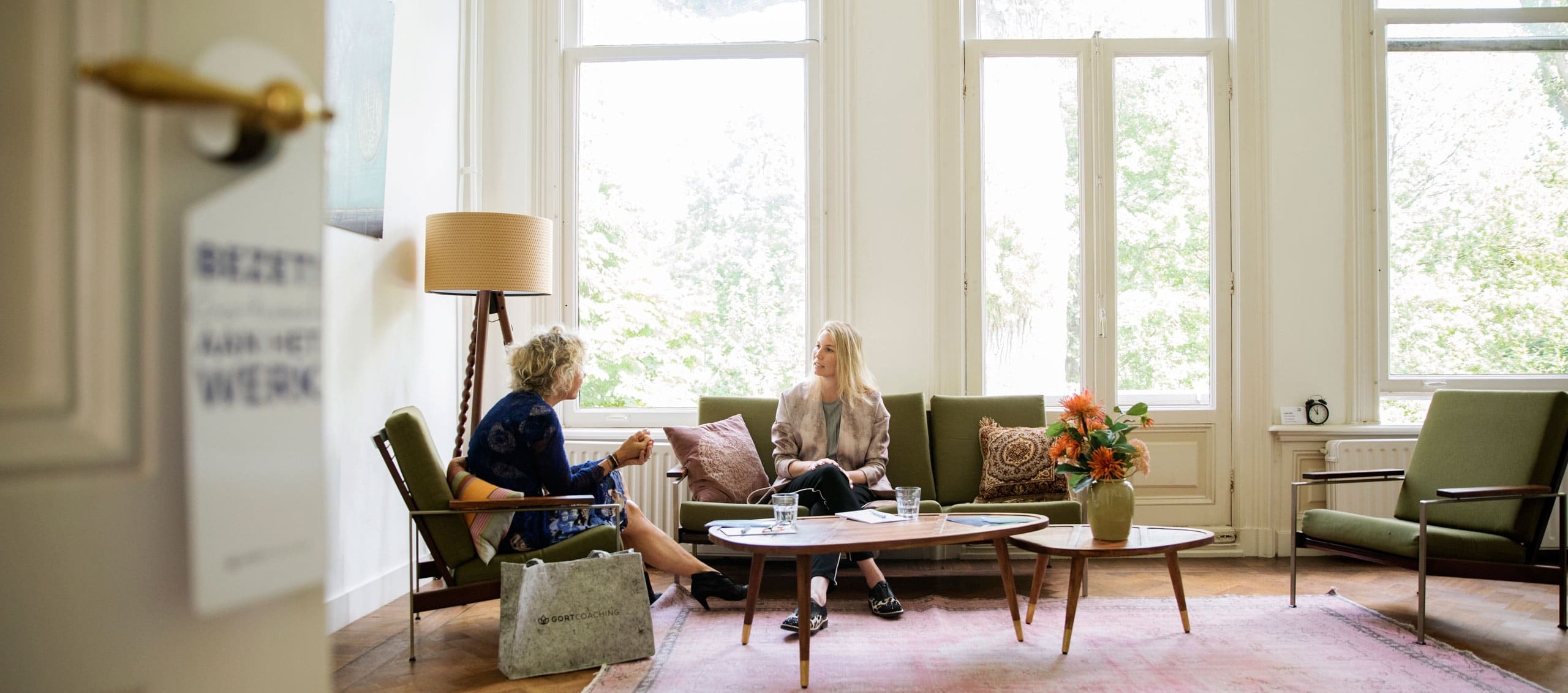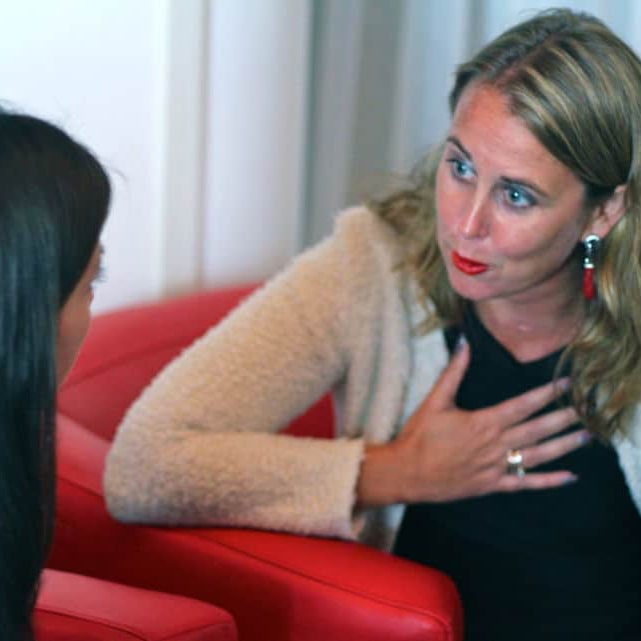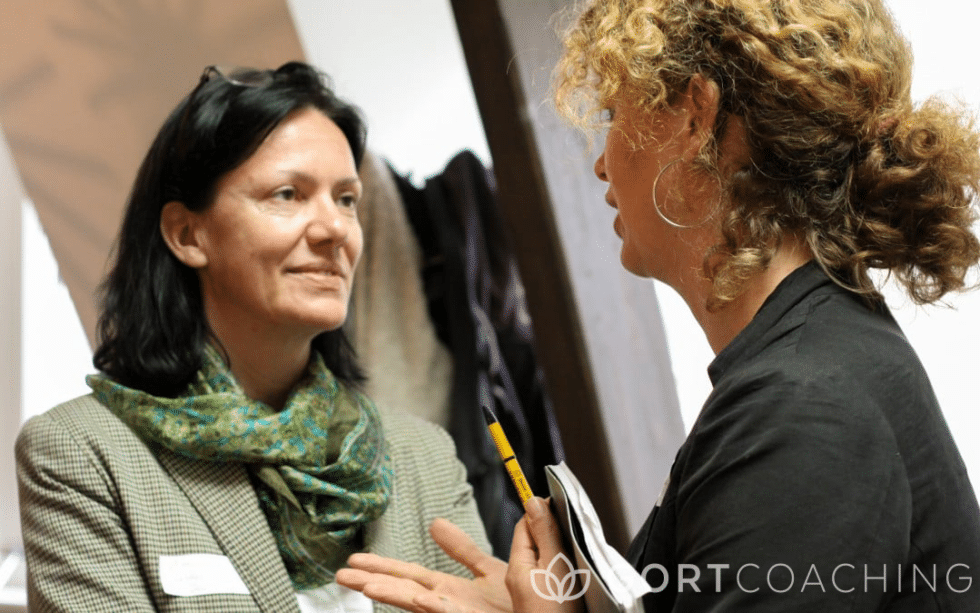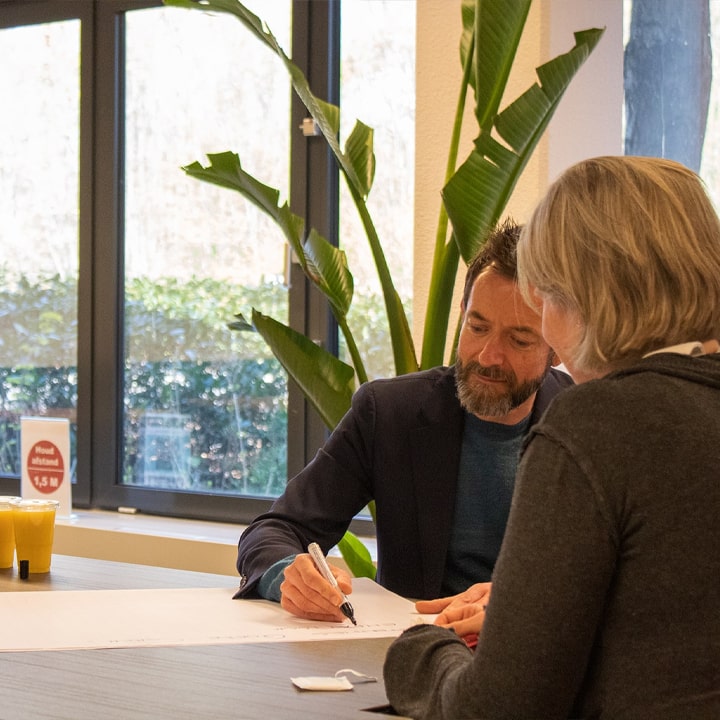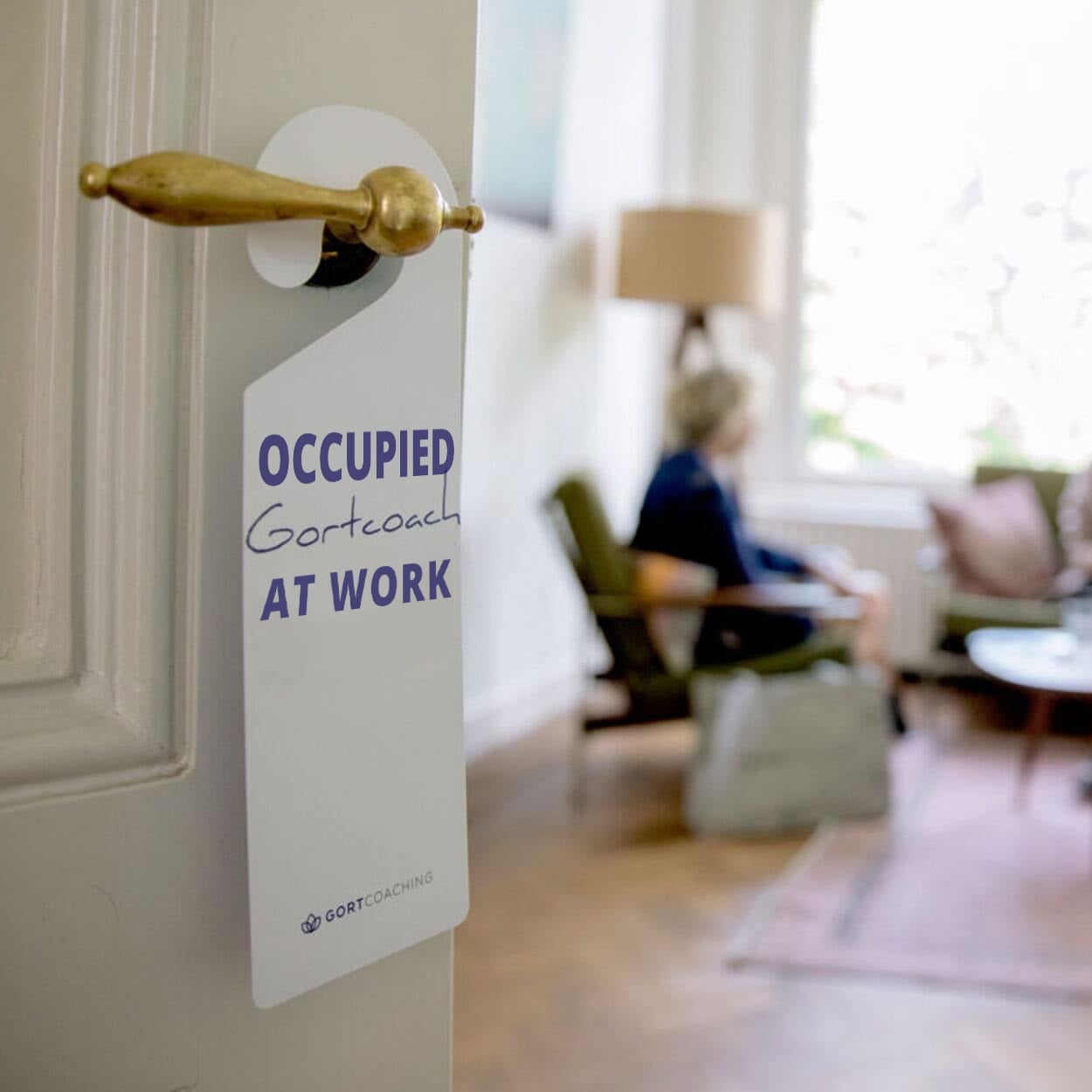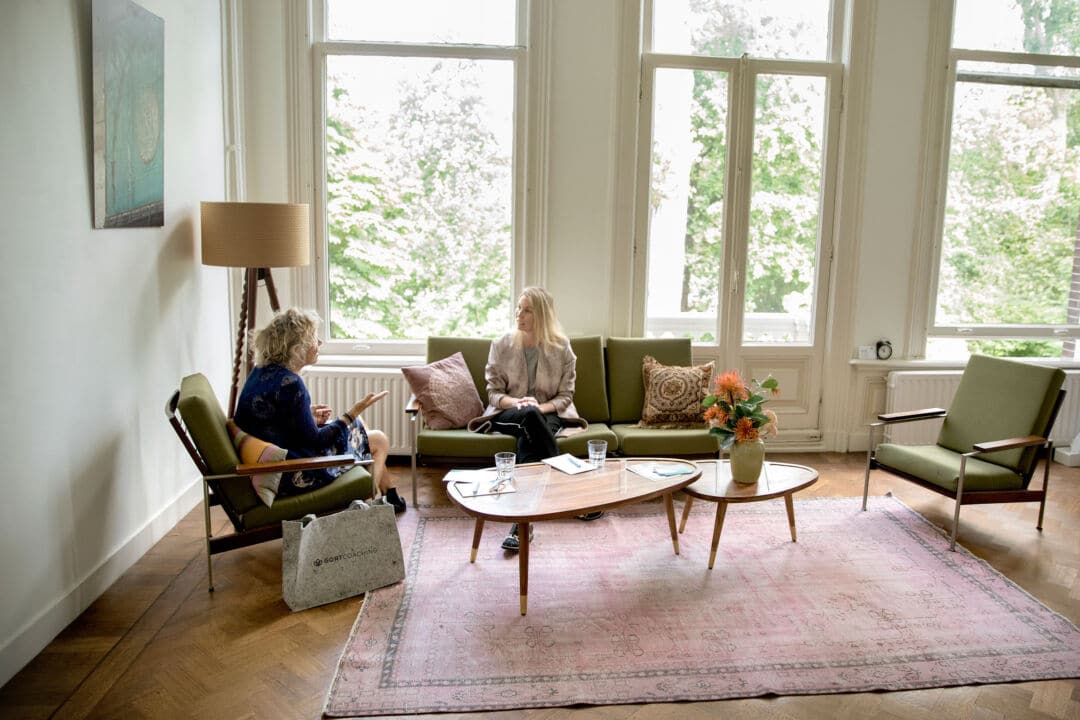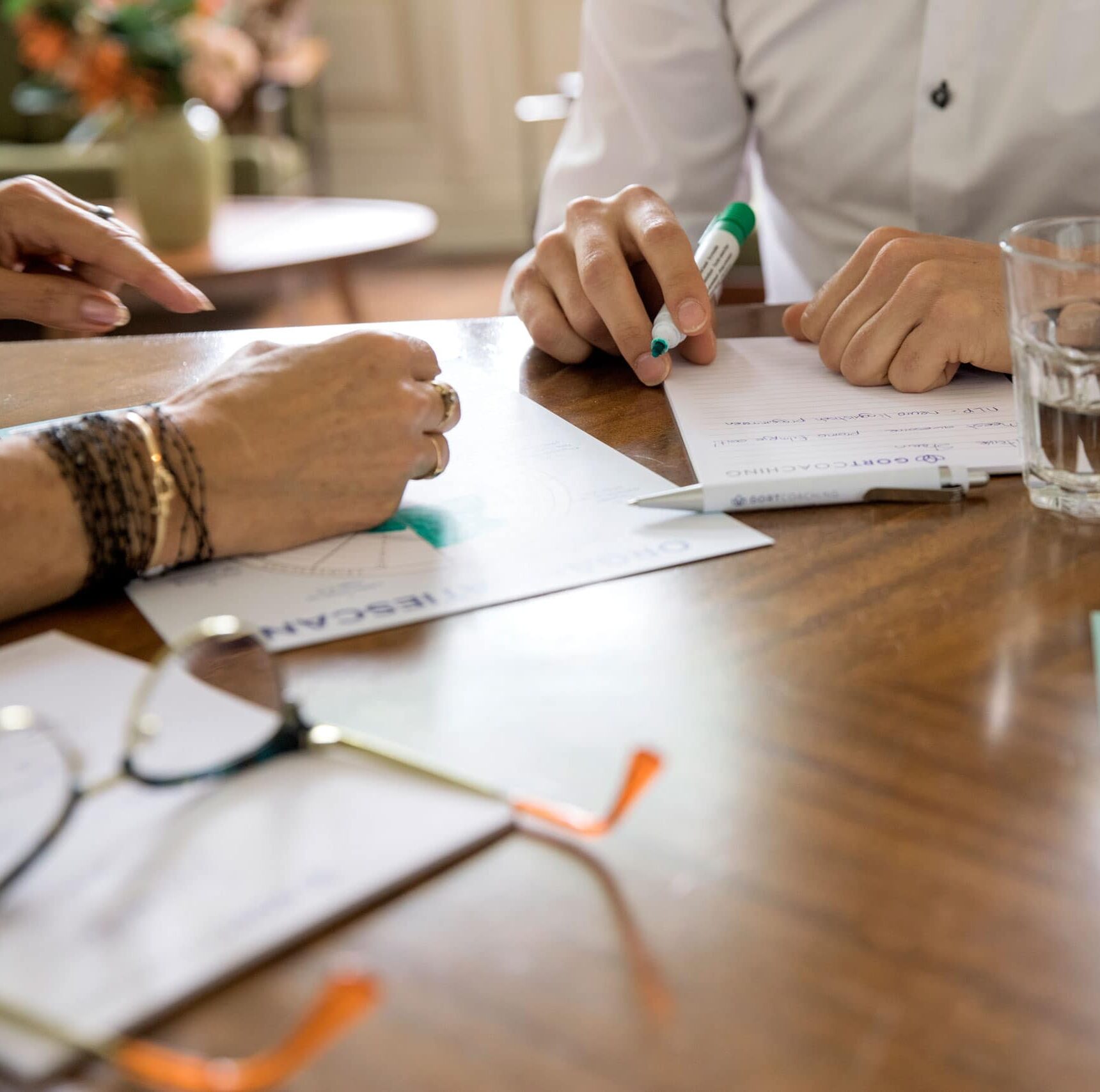Relationship Counselling
Relationship therapy with certified coaches and psychologists.
Everyone experiences difficult periods in their relationship at some point. These challenges are often caused by lack of time, work pressure, conflicts surrounding professional ambitions, cultural differences, and caregiving responsibilities related to children or parents.
Our relationship therapists specialize in supporting working professionals who want to maintain a healthy balance in their relationship, even during busy times.
Our psychologists and coaches who specialize in relationship therapy:

All coaches and psychologists selected in this filter specialize in relationship therapy. Are you unable to find a matching professional yourself? We are happy to assist you in finding a suitable relationship therapist. ☏ 088 170 1500
 Senior Coach
Senior Coach
Enthusiastic, honest, analytical, and results-oriented.
Enthusiastic, honest, analytical, and results-oriented.


How can couples therapy improve your relationship?
Couples therapy can improve your relationship by addressing and resolving issues that cause stress. It can help improve communication so that both partners can clearly express their feelings, needs, and expectations. This can be especially valuable in international relationships, where cultural differences, language barriers, or different expectations can sometimes make communication more challenging. Relationship therapy can also help develop better conflict resolution skills, so that differences of opinion can be addressed in a healthy and constructive way. For couples living abroad, therapy can also help navigate the additional stress of relocation, social isolation, or adjusting to a new culture together. In addition, it can contribute to a deeper understanding of each other’s perspectives and needs, which can lead to greater empathy and connection. Overall, relationship therapy can help improve satisfaction and happiness in a relationship.
The positive impact of relationship therapy
The positive impact of relationship therapy is broad and can vary depending on each couple’s unique situation. One of the most significant benefits is improved communication between partners. By learning more effective communication strategies, couples can reduce misunderstandings and improve their connection. This is particularly important for international couples, who may face challenges from cultural differences or language nuances that can create misunderstandings. Relationship therapy can also help resolve persistent conflicts and disputes, which can lead to a more harmonious relationship. Furthermore, it can contribute to a deeper understanding and empathy for each other’s needs and feelings. On a more personal level, relationship therapy can lead to improved self-knowledge and personal growth. Overall, the positive impact of relationship therapy can lead to healthier, happier, and more fulfilling relationships.

When is the right time to consult a relationship therapist?
Signs that you need a relationship therapist
It can sometimes be difficult to know when it is time to consult a relationship therapist. Here are some signs that may indicate the need for professional help:
- Ongoing conflicts: If you and your partner constantly argue about the same issues and you are unable to resolve them, a therapist can help.
- Lack of communication: If communication in the relationship is difficult or has completely dried up, a therapist can be helpful in reopening the lines of communication. This can be particularly relevant when partners have different first languages or communication styles shaped by cultural backgrounds.
- Decreased intimacy: A sudden or gradual decrease in intimacy or affection may also be a sign that you need help. Being away from familiar social support or dealing with relocation stress can sometimes amplify these feelings.
When should you see a relationship therapist?
There is no perfect time to seek help, but if you find that you are constantly unhappy in your relationship, that your relationship brings you more stress than joy, or that you keep repeating the same problems without resolution, then it may be time to see a relationship therapist. For expat or international couples, seeking support early can be especially helpful in navigating the added pressures of cultural adaptation, long-distance family ties, or living abroad. It is better to seek help when the problems are still small, rather than waiting until they become unmanageable.
The importance of relationship therapy
Relationship therapy is important because it helps address and resolve problems in relationships. It provides a safe space where couples can communicate and work on their differences with the help of a professional relationship therapist. Relationship therapy helps improve communication, build understanding, and find solutions to problems. It allows partners to view their relationship from a new perspective and provides them with the tools to strengthen and improve it. It can also help couples adapt to new environments together, manage long-distance challenges, or reconcile differing cultural expectations. Relationship therapy is not only for couples with problems; it can also be useful for couples who want to improve or deepen their relationship. It contributes to creating healthy, happy, and fulfilling relationships.
What does a relationship therapist do?
A relationship therapist focuses on improving communication, resolving conflicts, and strengthening the emotional bond between partners. A relationship therapist can help you gain more insight into the patterns and dynamics that influence your relationship and find new ways of interacting with each other. Relationship therapy is suitable for couples dealing with issues such as infidelity, loss of intimacy, arguments, different expectations, or different stages of life. It can also support couples in managing stressors unique to living abroad, such as social isolation, homesickness, or balancing different family and cultural expectations.
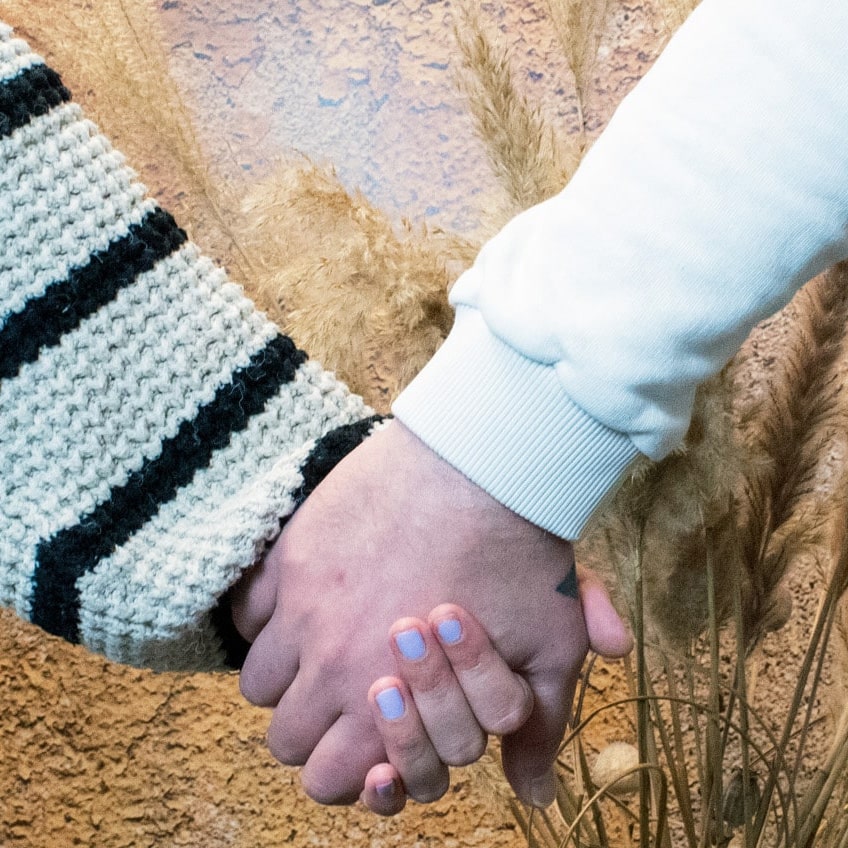
The basis of relationship therapy
Relationship therapy is a form of therapy that focuses on improving the relationship between two partners. But what exactly is the basis of relationship therapy?
What is it about?
Essentially, relationship therapy revolves around providing a safe and supportive environment in which partners can communicate openly, resolve conflicts, and improve their relationship. It involves learning new skills and techniques to interact better with each other and tackle problems.
How does it work?
Relationship therapy usually begins with a session in which the therapist maps out the couple’s relationship history and current problems. Specific goals are then set to improve the situation. The therapist helps the couple develop effective communication skills, understand each other’s feelings and needs, and find solutions to their problems. Therapists can also guide international couples through challenges specific to cross-cultural relationships, such as differing family expectations, adaptation to new environments, or managing long-distance family ties.
What is the goal?
The ultimate goal of relationship therapy is to help couples create a healthier and happier relationship. It is about enabling the couple to deal with problems effectively, develop better communication and understanding, and create a stronger bond. By working on these fundamentals of relationship therapy, partners can learn and grow, and improve their relationship. By addressing both universal relationship challenges and those unique to international life, partners can learn and grow together, building a resilient and fulfilling relationship.

What can you expect from your first session with a relationship therapist?
During your first session with a relationship therapist, you can expect an open and confidential atmosphere. The therapist will try to get a clear picture of the dynamics of your relationship and the challenges you are facing. This may involve talking about your relationship history, your current problems, and your goals for therapy. The therapist may also ask questions to gain more insight into your individual perspectives and experiences. This session is an opportunity to express your concerns and expectations, ask questions, and get a feel for the therapist and their approach. The goal of this session is to lay the foundation for the subsequent therapeutic work.
The first step toward improvement: the intake interview
The intake interview is the first step toward improvement in relationship therapy. This interview serves as the foundation on which the therapeutic process is built. During the intake interview, the therapist will try to understand the problems in the relationship, the specific challenges of each individual, and what you hope to achieve with therapy. This is an opportunity to speak openly about your concerns, fears, and expectations. Based on this conversation, the therapist will develop a customized plan to help you achieve your goals. This intake interview marks the start of your journey toward a better relationship and is a crucial step toward improvement and recovery.
The difference between a relationship therapist and a psychologist
A relationship therapist and a psychologist both play a role in promoting mental and emotional health, but there are some important differences. A relationship therapist focuses specifically on the dynamics of romantic relationships and the problems that can arise within them. They work primarily with couples (although they may also see individuals) and use therapeutic techniques to improve communication, resolve conflicts, and strengthen the relationship.
A psychologist can work with individuals, couples, families, or groups to address a wide range of mental and emotional issues. These can range from depression and anxiety to personal growth and self-discovery. Their work is generally broader and less specialized than that of a relationship therapist.
The benefits of relationship therapy
One of the biggest benefits of couples therapy is improved communication between partners. The therapist can teach techniques for effective communication, reducing misunderstandings and strengthening mutual understanding. This is especially helpful for international couples, where language differences or cultural communication styles can sometimes create confusion.
Relationship therapy provides the tools to resolve conflicts in a healthy way. Instead of falling into harmful patterns of arguing, couples learn how to approach their differences in a way that is respectful and constructive.
Relationship therapy can help you develop a deeper understanding of your partner and the dynamics of your relationship. This can lead to greater empathy and connection, strengthening your relationship. For international couples, it can also foster appreciation for each other’s cultural background and experiences.
Relationship therapy also offers opportunities for personal growth. It gives you the chance to better understand your own behavior and patterns, which can lead to positive changes in other aspects of your life. Living abroad can magnify these opportunities, helping each partner adapt, grow, and support one another in a new environment.
Relationship therapy strengthens the bond between partners. By working together to improve their relationship, couples can grow closer and build a stronger, healthier relationship.
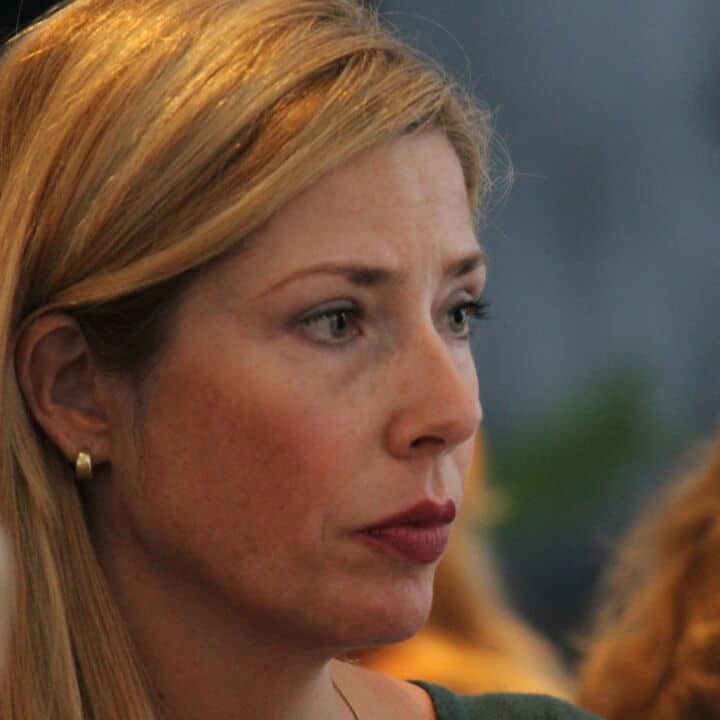
How does relationship therapy work at GORTcoaching?
Our approach to relationship therapy
At GORTcoaching, our approach to relationship therapy is focused, personal, and solution-oriented. We start with a thorough intake, in which we identify the unique needs, goals, and challenges of each couple. This enables us to develop a customized therapy plan that is specifically tailored to the couple’s situation. Our relationship therapists are experienced professionals who apply techniques and methods based on scientific research. We believe that communication, understanding, and respect are the keys to a healthy relationship. That is why our approach focuses on improving these aspects.
The relationship therapy process at GORTcoaching
The relationship therapy process at GORTcoaching begins with an intake interview. During this interview, the therapist discusses the relationship history and the current challenges the couple is experiencing. This allows the therapist to gain a thorough understanding of the relationship and the specific issues. After the intake interview, we develop a personalized therapy plan tailored to address the couple’s unique problems and goals. This plan can range from improving communication, addressing specific issues, or working on personal growth and development. The following sessions focus on implementing this plan. The relationship therapist guides the couple through conversations, exercises, and techniques to help them achieve their goals. These sessions provide a safe and supportive environment where the couple can learn, grow, and improve their relationship.

The relationship therapists at GORTcoaching
Qualified professionals
The relationship therapists at GORTcoaching are highly qualified professionals with extensive experience in the field of relationship counseling. They have the necessary education and training to provide effective therapy tailored to the specific needs and goals of each couple.
Personal approach
Every therapist at GORTcoaching approaches relationship therapy in a personal and empathetic way. They understand that every relationship is unique and strive to provide a safe, respectful, and supportive environment in which couples feel comfortable discussing their problems.
Evidence-based methods
Our therapists use evidence-based methods and techniques in their work. This means that the therapies and interventions they use are supported by scientific research. This ensures that you receive the best possible care and support to improve your relationship.
Ongoing support
At GORTcoaching, we understand that the journey to a better relationship does not end when the therapy session ends. That is why our therapists offer ongoing support and guidance to help you maintain and improve the positive changes you have made during therapy.
Tips for finding the right relationship therapist at GORTcoaching
Finding the right relationship therapist at GORTcoaching can be a key factor in the success of your therapy process. Here are some tips to help you make this important choice:
Meet our therapists
Visit the GORTcoaching website to view the profiles of our therapists. There you will find information about their training, specializations, working style, and experience.
Schedule an intake interview
An intake interview can help you determine whether you feel comfortable with a particular therapist and whether their approach suits you and your relationship.
Ask questions
during the intake interview
Questions about the therapist’s approach, the types of techniques they use, how they give feedback, and what you can expect from the therapy process.
Consider your feelings
Your relationship with your therapist is essential. Do you feel understood and respected? Do you feel comfortable being open and honest?
Discuss practical matters
Matters such as the location of the sessions, their frequency, the costs, and the payment options are also important to discuss to ensure that the therapy is feasible and accessible for you.
Experiences of couples
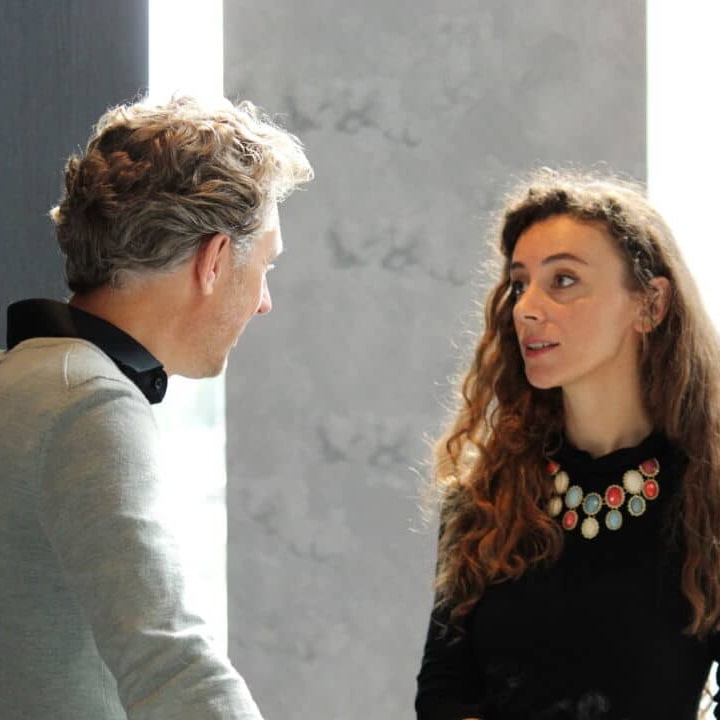
Why a relationship therapist?
Relationships can sometimes be complex and challenging. Whether it’s unresolved conflicts, communication problems, or the desire for a deeper emotional connection, there are times when we could all use a little help. This is where relationship therapy comes in. Relationship therapy, conducted by an experienced relationship therapist, can play an important role in helping you navigate the difficulties of a relationship and build a stronger, healthier bond. At GORTcoaching, we understand the value of a supportive and meaningful relationship.
Communicating
A relationship therapist can help you communicate better with your partner. Communication is an essential part of our daily lives and forms the basis for all types of relationships. It goes beyond just talking and listening—it’s also about understanding and conveying feelings. Good communication promotes mutual understanding and respect and plays an important role in strengthening relationships. Without it, misunderstandings and conflicts can arise, which can lead to tension. Effective communication means expressing our thoughts and feelings clearly and directly, while also listening attentively to what the other person has to say. It involves exchanging ideas and feelings, asking questions, and showing empathy. Learning to communicate is an ongoing process, but with practice and awareness, anyone can improve their communication skills.
Insights
A relationship therapist can provide you with insights into the patterns and issues that influence your relationship. Insights refer to the deeper knowledge or understanding you gain about yourself, others, or a particular situation. It can be a sudden realization or something that develops gradually as you gain more experience or reflect on your life. Insights can help you make better decisions because they often lead to a better understanding of yourself, your behavior, and your reactions to certain situations. Having insights can help you change your behavior, adjust your attitude, or simply understand why things happen in a certain way. The most important thing about insights is that they help you grow and evolve as a person, enabling you to better navigate your life and relationships.
Solutions
A relationship therapist can support you in working together to find solutions and improve your relationship. Solutions are the answers or remedies to problems or challenges. They can be simple or complex, depending on the situation. A solution can be a strategy, an action, a plan, an adjustment, or even a behavioral change that leads to an improvement in the situation. In the context of coaching or therapy, finding solutions is a crucial goal. It is not just about identifying problems, but above all about finding feasible, effective, and sustainable solutions. This may involve developing new skills, changing certain habits, improving communication, or finding new ways of dealing with stress or conflict. Finding the right solutions can lead to growth, change, and improvement in various aspects of life.
Frequently asked questions about relationship therapy
What is relationship therapy?
Relationship therapy is a specific form of therapy that focuses on addressing structural and communication problems and tensions between couples. The focus is on the patterns, behavior, and emotions of both partners individually and in relation to each other. Relationship therapy can help resolve the issues that you repeatedly argue about. Going to therapy together creates an extra dynamic and gives couples more tools to work on their relationship together, which can lead to faster results.
What is the effect of relationship therapy?
Relationship therapy can help resolve the issues that cause you to argue repeatedly. After a session of relationship therapy, people often feel relieved, hopeful about the future of their relationship, more connected to each other, and inspired to reflect. Attending therapy together creates an additional dynamic and provides couples with more tools to work on their relationship together, leading to faster results. Statistics show that couples therapy is up to three times more effective than individual sessions.
What does a relationship therapist do?
A relationship therapist works with couples to identify and resolve underlying issues in their relationship. They provide techniques and strategies to improve communication, manage conflict, and strengthen the emotional connection between partners.
When should I consult a relationship therapist?
Consider a relationship therapist if you are experiencing ongoing conflicts, feelings of dissatisfaction, or problems in your relationship that you cannot resolve on your own. Relationship therapy can also be helpful if you feel that the connection or communication with your partner needs improvement.
What happens during a session with a relationship therapist?
During a session, the relationship therapist will help you express your feelings and thoughts, understand the dynamics of your relationship, and work on effective solution strategies. The therapist may use different techniques depending on your unique situation and needs.
What is the difference between a relationship therapist and a psychologist?
A relationship therapist specializes in working with couples and addressing relationship-related issues. A psychologist, on the other hand, can work with individuals, groups, or families on a wide range of mental and emotional issues, not just relationship problems.
How can I find the right relationship therapist?
It is essential to choose a therapist with whom you feel comfortable and who has experience with your specific issues. Read about their experience and approach, schedule an introductory meeting, and ask questions about their methods and the expected therapy process.
What does a relationship coach do?
A relationship coach helps deepen and improve relationships. Using various coaching tools and exercises, partners learn to effectively utilize the strengths and qualities within their relationship. A relationship coach therefore has a different focus than a relationship therapist: a relationship coach focuses less on negative events in the relationship and more on positive characteristics and possibilities.
A relationship coach pays close attention to how partners communicate. What is said and what is left unsaid? Are vulnerabilities and feelings shared? What undesirable patterns have developed? What are everyone’s expectations?
Relationship coaching helps partners understand each other better, feel more connected, dare to challenge each other, and strengthen their relationship in the long term.

Do You Have Any Questions?
Hello, I am Cheryl, Coaching Advisor at GORTcoaching. I can assist you in selecting the right relationship therapist and can schedule your free orientation session by phone.
☏ +3188 170 1500
I would be happy to assist you!

 Nederlands
Nederlands Vlaams
Vlaams Deutsch
Deutsch












